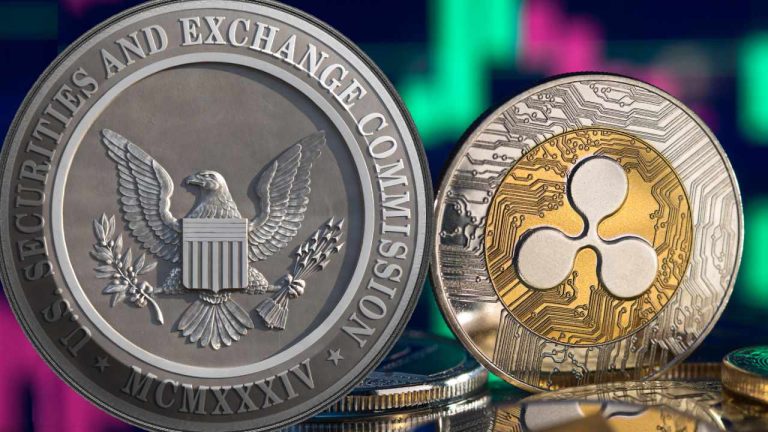
A lawyer has outlined four potential next steps that the U.S. Securities and Exchange Commission (SEC) could take following the ruling on the Ripple case regarding XRP. “I expect the SEC to file a request for interlocutory appeal within the next 2 weeks,” he opined, asserting that it would be in the best interests of Ripple and the XRP community for the SEC to start the appeal process now.
4 Options SEC Could Take Next in Ripple Case
Lawyer James Murphy outlined in a series of tweets on Tuesday four options the U.S. Securities and Exchange Commission (SEC) could take in the Ripple case following the ruling by District Judge Analisa Torres regarding XRP. The SEC has indicated that it will appeal the court decision.
“There’s a lot of debate about what the SEC will do next in the Ripple case. I believe there are at least 4 options under consideration,” he began, stating that the first option is for the SEC to file a “request for interlocutory appeal.” The lawyer, whose practice focuses on securities law, detailed:
Because no final judgment has been entered yet, the SEC doesn’t have the unilateral right to appeal now. It would need permission from both Judge Torres & the 2nd Circuit Court of Appeals to proceed with an interlocutory appeal.
He explained that the SEC would need to show three things to get permission for interlocutory appeal. Firstly, the SEC must show that “The ruling involves a controlling question of law.” In addition, the regulator needs to show that “There is substantial grounds for difference of opinion on that question” and that “An immediate appeal may materially advance the litigation.”
While clarifying that “There’s no specific deadline for the initial [appeal] request,” Murphy noted that “it should be done promptly,” emphasizing that “a rule of thumb is within 30 days.” He added: “If Judge Torres agrees, the SEC would then have 10 days to ask the 2nd Circuit.”
The lawyer proceeded to detail the other three options. In the second option, the SEC would proceed with a trial on the aiding and abetting claim against Ripple CEO Brad Garlinghouse and co-founder Chris Larsen, then file a regular appeal after the trial. The third option involves the securities regulator dropping the claims against Garlinghouse and Larsen now and filing an immediate appeal. Murphy stated that no permission is needed for this route. The fourth option for the SEC is to settle.
Murphy believes that the SEC is likely to take the first option for two main reasons. The first reason is that “there’s tremendous political pressure on Gensler to get the Torres decision reversed asap.” The second reason is that “the decision looms like a dark cloud over the SEC’s cases” against several cryptocurrency exchanges, including Coinbase, Binance, and Bittrex. He stressed:
The political considerations are important. Crypto exchanges around the world are re-listing XRP — making the SEC look bad. Progressive Congressman Ritchie Torres & others have been emboldened to amp up criticism of Gensler. This is all embarrassing for Gensler & his allies.
Regarding the settlement option, Murphy believes that it is “unlikely at this point.” He opined: “It’s hard to imagine the SEC settling with Ripple and leaving the Torres precedent untested on appeal. The SEC’s whole ‘regulation-by-enforcement’ program against the crypto industry hinges on getting Torres reversed.”
He concluded: “Bottom line: I expect the SEC to file a request for interlocutory appeal within the next 2 weeks. I believe it would be in the best interests of Ripple & the XRP Community for the appeals process to start now — rather than a year from now. And I like Ripple’s chances on appeal.”
Which option do you think the SEC would take in the Ripple case? Let us know in the comments section below.








